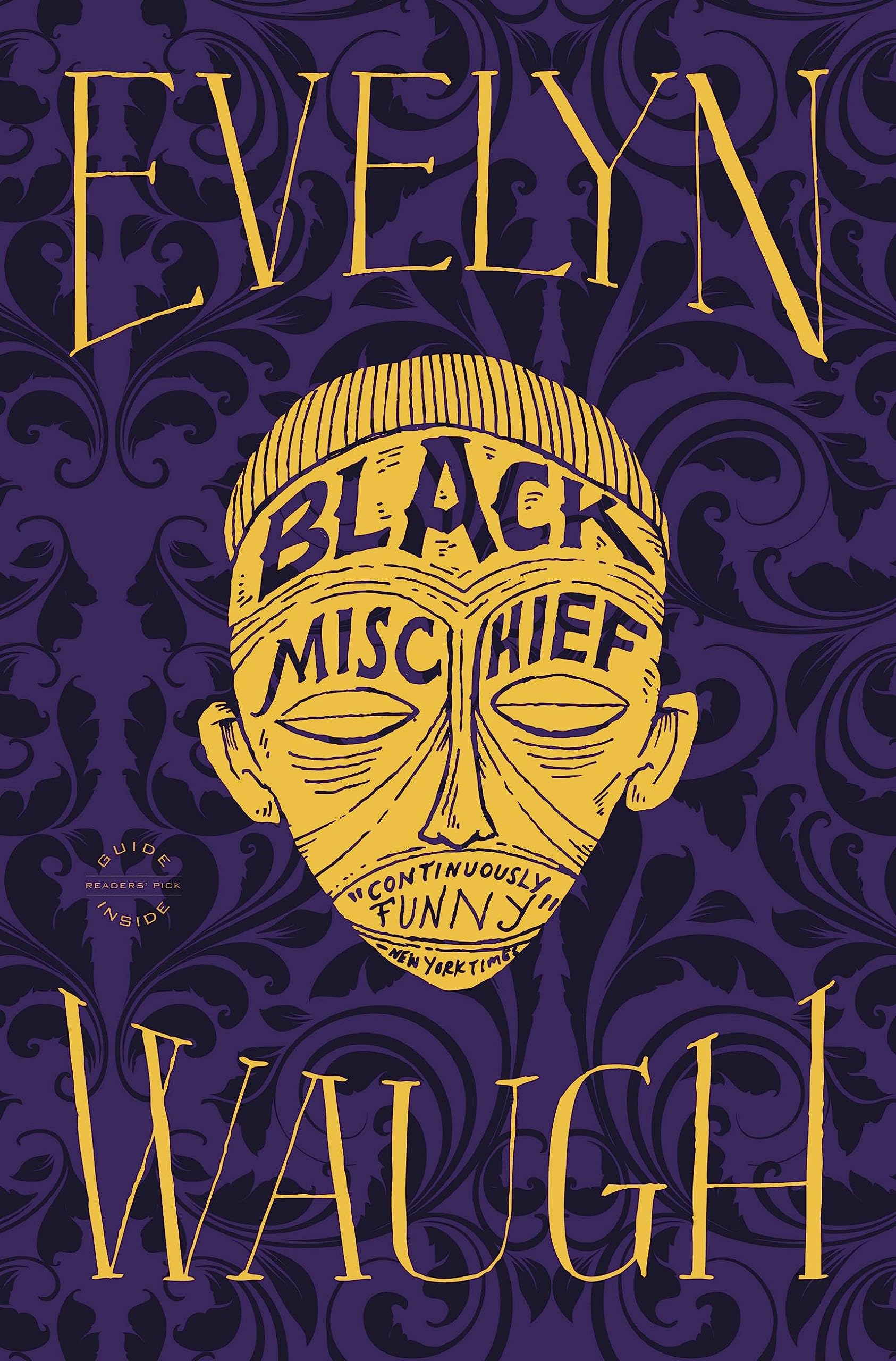Customer Services
Copyright © 2025 Desertcart Holdings Limited


Full description not available
G**N
A Spirited Send-Up
I clicked the boxes on the new, dumbed down Amazon review writing page, but I must say it doesn't admit any nuance. Five stars, they say means "I Love It", which is not what I mean at all when I give something five stars. So why did I now? Because I'm reading Evelyn Waugh's Letters, and I'm at the part where a Roman Catholic paper publishes diatribes against this novel. All I can say is they don't get it. This novel, like all of his novels (or all I'm familiar with) is satire, and not meant to be advice for good living, correct doctrine, or any sort of propaganda. You can't have read one novel by Waugh and think that's what he writes. However, I can imagine that the paper could not do him any greater service than lambast his novel, since, then as now, readers would flock to it were it forbidden.I found it endlessly witty, and if asked what it satirizes, I'd say it's the idea of British Imperialism, of which many earnest novels were being written in his day. At the same time he wrote fiction, he was writing travel books. I've just finished "Labels" (the British title), which is one, but there was another, called "Remote People" which he wrote around the same time, and which I've not read. but which, I think, provides some of the regional background or local color for this novel. Also, there are bits in the Letters I recognize as turning up in this novel.There is a corollary to the incredibly idiotic post-modern attempt to read everything backwards so as to deconstruct it in the fact that when Waugh's most famous novel, "Brideshead Revisited" was published, it was dismissed as religious propaganda, which shows how virulently anti-Catholic England in many ways still was. No one reads it that way now. It's been made into a mini-series, a movie, and reprinted in numerous ediitons. A great many readers have apparently got through it and lived to tell the tale. And so with this novel. Waugh himself thought it a rattling, ripping story, and laughed as he wrote it, as may also readers who take it in the same generous, if satiric spirit.
B**M
Joseph Conrad Meets Monty Python
"Black Mischief" is not a safe book; it delves into racial and political divides as wide now as then and lets you know its author isn't aboard for any of that 21st-century sensitivity rot. Despite or perhaps because of this it is a good book, perhaps a great book, and worthy of your time.In the island nation of Azania, just off the coast of East Africa, Oxford-educated Emperor Seth attempts to force his backward, war-torn nation to emulate the West. Help arrives in the form of a British ne'er-do-well, Basil Seal, "a man of progress and culture" as Seth styles him. This of course means Seal is trouble as well.As I read deeper into "Black Mischief", I was struck by two things. One was how easily it flowed, not only with Waugh's always elegant prose but the plot itself. Waugh isn't ordinarily so clean a scenarist. The other was how like Joseph Conrad's "Nostromo" this is, making the same points about First World meeting Third World. Except where "Nostromo" was clumsy and dry, Waugh sells his message with wit and surreal humor.He even goes to the trouble of mapping out Azania, which helps a lot given it is a nation entirely of Waugh's own imagining. As the characters cross its expanse, I found myself referring back to the map in front and enjoying how well it matched up with the narrative.When I picked up "Black Mischief", I was concerned about the obvious racial aspects. Waugh was capable of writing hurtful things about blacks as well as other groups Waugh experienced from a distance. "Remote People," published in 1931 just one year before "Black Mischief", presents Africans in the role of bloody-minded savages.Well, there are plenty of savages in "Black Mischief", too, only most of the ones we get to know best and like least are European. Seth begins to go wrong when he tries to imitate his imagined betters, picking up and dropping one faddish craze after another, whether it be autogyros or universal contraception. "THROUGH STERILITY TO CULTURE" reads one banner."He'll discover every damn modern thing if we don't find him a woman damn quick," an accomplish of Seal complains. Not that Seth's gullible. The West is just too full of bad ideas.Take a couple of middle-aged animal-rights activists who walk through Azania's impoverished streets throwing scraps for dogs and complain when children try to make off with them instead: "Greedy little wretches."Not all the jokes go over. Waugh does hit the same points over again, like the dense senior British envoy Sir Sampson and his scheming French opposite number M. Ballon. The notion of Azania as a plaything for Western mediocrities is a worthy one, central to Waugh's point regarding former colonialists suddenly opting to lead their ex-charges on the road of improvement. I just wished he was more subtle at it, or tied that part of the story better to the rest.But there's nothing really bad in here, at least not anything like I expected, and there's quite a bit good, even brilliant. The first chapter alone packs enough intrigue and suspense for Frederick Forsyth, and the Conradian mood, though limned with humor, stays intact throughout. There are gulp-inducing moments, and laugh-inducing ones, and the marvel is not only how often these come up but how closely together.
**I
classic
book was very enjoyable and all that i heard it would be for any reader to enjoy. lots of brilliant characters
Trustpilot
2 days ago
5 days ago